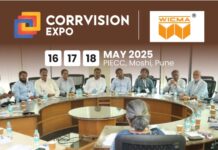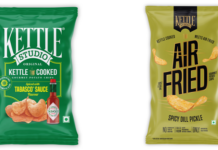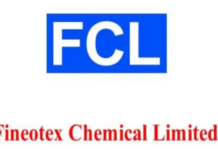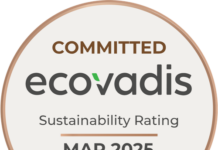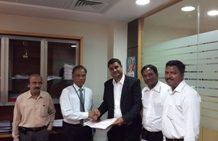- Urges Government to remove complex issues to make Metal Recycling Trade hassle-free.
- Indian Metal Recycling sector poised to grow at 11.4% CAGR till 2020: Report by Frost & Sullivan.
- Indian Metal Recycling body seeks ‘industry’ status and rationalisation of duties to make the sector globally competitive.
Mumbai, February 01, 2016: Indian Metal Recycling Industry, which recycles metals like steel, aluminium, copper, zinc; majorly from automotive, power, infrastructure, construction and white goods industry, is set to register an annual growth of 11.4 per till the year 2020 and considering the growth potential, it needs immediate policy intervention, noted the Report ‘Metal Recycling Sector: Contributor to National Wealth’ published by Frost & Sullivan at the ‘Metal Recycling Conference’ organised by Metal Recycling Association of India (MRAI), an apex body of India’s ferrous and non-ferrous metals recycling industry.
A three-day Conference titled ‘Metal Recycling in India Vision Forward – A Clean, Green India’ commenced here in New Delhi today. Shri. Narendra Singh Tomar, Union Minister for Steel, Government of India inaugurated the Conference. Dignitaries from the Government and stakeholders of Metal Recycling Industry were present at the inauguration. On the Second Day, Smt. Aruna Sundararajan, IAS, Secretary, Ministry of Steel, Mr. Balvinder Kumar, IAS, Secretary, Ministry of Mines, Smt. Poonam Maddam, Hon’ble MP, Jamnagar will address the Conference. Other subject experts and eminent speakers will speak on important topics like: Abolishment of import duty on imports of metal scraps, Review of FTA with ASEAN countries, Pre-Shipment Inspection Certification & Issues Involved, Absence of General Trade Practices or Guidelines For Shipping Lines and Awarding Industry Status to Recycling Industry. Mr. Sanjay Mehta, President, MRAI welcomed the guests. Mr. Ranjit Baxi, President, Bureau of International Recycling (BIR), an internationally renowned metal recycling expert will also be present.
The Report on metals recycling industry noted that the potential of Metal Recycling industry is not fully utilised and hence, there is more burden on primary production resulting in depletion of natural resources. A strong policy regime can not only turn the fortunes of this industry favourably by throwing up immense economic opportunities; but will also help convert waste into wealth for the nation, said the Report.
Expressing his view Mr. Sanjay Mehta, President,Metal Recycling Association of India,said,“Recycling sector must be supported and promoted so that end of life automotive vehicles/white goods/revert scrap are disposed-off in a safe manner and are utilized back into the ecosystem thereby facilitating towards providing a tremendous boon to the Indian economy.”
Talking about various issues and topics to be taken up for discussion during a three-day Conference, Mr Mehta added, “MRAI members will deliberate on immediate concerns where they need Government’s intervention. Pre-Shipment Inspection Certification (PSIC) is one such area where the trade body wants the Government to streamline pre-shipment inspection procedures, which need to be done hassle-free. The trade body also wants to remove inconsistencies in customs and evaluation of pricing in scrap imports. With this, the members demand for same duty structure for entire India at various ports. It will also seek a constitution of a regulatory body to control and monitor shipping lines.”
Today, India’s annual scrap consumption is INR 750 billion (20.40 million tonnes) and it imports 6.48 million tonnes of scrap at an estimated value of INR 390 billion to become the world’s third largest importer of scrap. With a CAGR of 11.4%, the sector is poised to take the consumption to 30.03 million tonnes by 2020. Surprisingly, India’s recycling rate is less than 20% where the world over, recycling has been accepted as a sustainable business model yielding higher revenues entailing saving the environment and tremendous amount of energy.
With a view to ensure the fast track growth of the industry, Metal Industry Association of India has sought a framing and implementation of Metal Recycling Policy duly supported by an ‘industry-status’ recognition. Metal Recycling contributes about two to three per cent to the Indian GDP. As the industry opens up and grows at a CAGR of 11.4 per cent, this will increase the contribution of Metals Recycling to the Indian GDP and ensure sustainable growth coupled with preservation of natural resources.”
Talking about expectations from the Government, Mr Mehta further added, “When Global Recycling Industry generates an annual revenue of $500 billion, India is lagging much behind. Government should immediately intervene and draft a Metal Recycling Policy to grant industry status to this sector and rationalise duty structures to make it a globally competitive industry. With this, the Government will be a net revenue earner and it will save the environment and energy.With a better flow of raw material in manufacturing through recycling of metals, the industry can thus help achieve Government its mission of Swatch Bharat Abhiyaan and Make in India.”
The Industry has sought following initiatives by Government on urgent basis:
- Industry Status and Policy to Metal Recycling Sector: Policy to be framed to promote the sector such as Recycling zones / clusters, incentives, Subsidies.
- Exemption of Special Additional Duty (SAD): SAD of 4% has to be exempted for recycling sector as it adds to the tax burden that is passed as CENVAT credit which remains unused
- Amending the CENVAT Act: To allow SAD Refund for companies filing closure and Cenvat Credit to be allowed for adjustment against fresh import, if not utilized within 90 days
- Removal of Basic Import Duty: Basic Customs duty levied on imports of Ferrous & Non Ferrous Scrap to be removed as Indian manufacturers stand to lose market share vis a vis other emerging countries due to higher import tariff on metal scrap
- Inverted Duty Structure on account of FTAs (Foreign Trade Agreements) needs to be corrected: FTAs with partner countries to be corrected to avoid inverted Duty structure – Raw materials cost higher than imported semi / finished metal products
Corporate Comm India(CCI Newswire)





